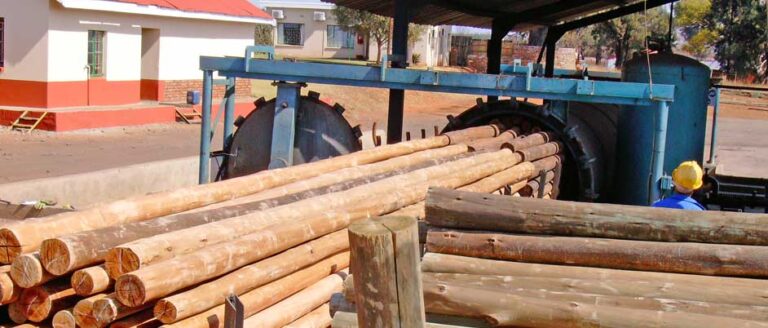In the world of timber practices, sustainability has become a paramount concern. The rampant deforestation and ecological damage caused by unsustainable timber practices have necessitated the development of certification programs to ensure the responsible management of timber resources.
One such program is the South African Wood Preservers Association (SAWPA) certification, which plays a crucial role in promoting sustainable practices within the timber industry. This article aims to explore the importance of SAWPA certification and its role in fostering sustainable timber practices.
By adhering to rigorous criteria, SAWPA certification ensures that timber companies adopt environmentally-friendly practices, minimizing their ecological footprint and preserving natural resources for future generations. Through a series of case studies, we will examine the tangible benefits that timber companies derive from SAWPA certification.
Ultimately, this article will shed light on the future of sustainable timber practices and the pivotal role that SAWPA plays in achieving this goal.
Key Takeaways
- SAWPA certification ensures environmentally-friendly practices and preserves natural resources in the timber industry.
- Unsustainable timber practices lead to deforestation, loss of biodiversity, and harm to local communities, while SAWPA certification promotes sustainable practices and supports local communities.
- SAWPA certification encourages environmentally conscious procedures and innovation in the timber industry.
- Benefits of SAWPA certification include enhanced reputation, market advantage, cost-effectiveness, and access to new markets.
The Impact of Unsustainable Timber Practices
The detrimental effects of unsustainable timber practices on the environment and local communities have been well-documented, highlighting the need for effective measures to address this issue.
The consequences of such practices are numerous and far-reaching. One major consequence is deforestation, which leads to the loss of biodiversity and disrupts ecosystems. Additionally, illegal logging often accompanies unsustainable practices, further exacerbating the negative impacts. This not only contributes to rampant environmental degradation but also undermines the livelihoods of local communities who depend on forests for sustenance and income.
To combat these issues, the Southern African Wood Preservers Association (SAWPA) certification plays a crucial role in promoting sustainable timber practices. By certifying timber products that adhere to stringent environmental and social standards, SAWPA ensures that the timber industry operates in a way that minimizes harm to the environment and supports the well-being of local communities.
The Role of SAWPA in Promoting Sustainable Timber Practices
One significant aspect to consider is the impact of SAWPA certification on the implementation of environmentally conscious procedures within the timber industry. The role of SAWPA in promoting sustainable timber practices is crucial in ensuring that timber companies adhere to certain standards and guidelines that prioritize ecological sustainability.
The SAWPA certification process involves a rigorous assessment of a company’s timber practices, including logging methods, reforestation efforts, and waste management strategies. By obtaining SAWPA certification, timber companies demonstrate their commitment to responsible and sustainable practices. This certification acts as a mark of credibility and trust, allowing consumers to make informed choices when purchasing timber products.
Moreover, the SAWPA certification process encourages continuous improvement and innovation within the timber industry, as companies strive to meet and exceed the required standards.
Transitioning to the subsequent section about the benefits of SAWPA certification for timber companies, it is important to acknowledge the positive outcomes that result from this certification process.
Wondering why SAWPA Certification matters? Gain comprehensive insight into its importance. Find Out More!
The Benefits of SAWPA Certification for Timber Companies
A clear advantage of achieving SAWPA certification is that it enables timber companies to establish themselves as environmentally conscious industry leaders. This not only enhances their reputation but also attracts environmentally conscious consumers who prioritize sustainable practices. The market demand for sustainable timber is steadily increasing, and companies with SAWPA certification are well-positioned to meet this demand.
In addition to the market advantage, SAWPA certification also offers cost-effectiveness for timber companies. By implementing sustainable practices and meeting the certification criteria, companies can optimize their resource management, reduce waste, and improve overall efficiency. This leads to cost savings in the long run, as well as improved profitability.
Other benefits of SAWPA certification include:
- Access to new markets and customers who prioritize sustainability.
- Enhanced credibility and trust among stakeholders, including investors, government agencies, and NGOs.
- Improved risk management by complying with industry standards and regulations.
- Opportunities for collaboration and knowledge sharing with other certified companies.
Obtaining SAWPA certification requires meeting specific criteria that ensure sustainable timber practices, as discussed in the subsequent section about the criteria for obtaining SAWPA certification.
The Criteria for Obtaining SAWPA Certification
To obtain SAWPA certification, timber companies must meet specific criteria that ensure adherence to sustainable timber practices. These criteria include demonstrating a reduction in carbon emissions by 25% within the first year of certification.
This process of obtaining SAWPA certification is crucial in promoting sustainable timber practices and addressing environmental concerns. By setting these criteria, SAWPA ensures that certified timber companies actively work towards reducing their carbon footprint and contribute to the overall goal of sustainable forestry.
Meeting the SAWPA certification criteria signifies a commitment to responsible and sustainable timber practices, which is of great significance in today’s environmentally conscious society. By adhering to these criteria, timber companies not only ensure their own success but also contribute to the preservation of our natural resources.
Transitioning into the subsequent section about ‘case studies: timber companies benefiting from SAWPA certification,’ it is evident that the criteria set by SAWPA play a vital role in promoting sustainability in the timber industry.
Case Studies: Timber Companies Benefiting from SAWPA Certification
Several timber companies have experienced significant benefits after obtaining SAWPA certification, demonstrating the positive impact of sustainable timber practices. These case studies highlight the advantages of certification for timber companies:
- Increased market demand: Companies with SAWPA certification have witnessed a surge in market demand for their sustainable timber products. Certification provides assurance to consumers that the timber has been sourced responsibly, leading to increased sales and market share.
- Enhanced reputation and credibility: SAWPA certification enhances the reputation and credibility of timber companies. It signifies a commitment to sustainable practices and demonstrates compliance with stringent environmental standards. This fosters trust among consumers, investors, and stakeholders, leading to improved business relationships.
- Access to premium markets: SAWPA certification allows timber companies to access premium markets that prioritize sustainable sourcing. These markets often offer higher prices for certified timber products, providing companies with a competitive advantage and increased profitability.
These case studies illustrate how SAWPA certification benefits timber companies, paving the way for the future of sustainable timber practices.
The Future of Sustainable Timber Practices and the Role of SAWPA
The future of sustainable timber practices lies in the adoption of responsible sourcing methods and adherence to stringent environmental standards, exemplified by the SAWPA certification. Implementing sustainable timber practices poses several challenges, such as the need to balance conservation efforts with economic considerations and the difficulty of monitoring and enforcing compliance.
However, the SAWPA certification provides a framework that addresses these challenges by setting clear guidelines for responsible sourcing and promoting transparency in the timber industry. Additionally, the role of government is crucial in supporting the SAWPA certification and encouraging its adoption by timber companies.
Government policies can provide incentives for sustainable practices, enforce regulations, and promote awareness among consumers. By working together with the government and embracing the SAWPA certification, the timber industry can pave the way towards a future of sustainable timber practices that preserve our forests while meeting the demands of a growing global population.









